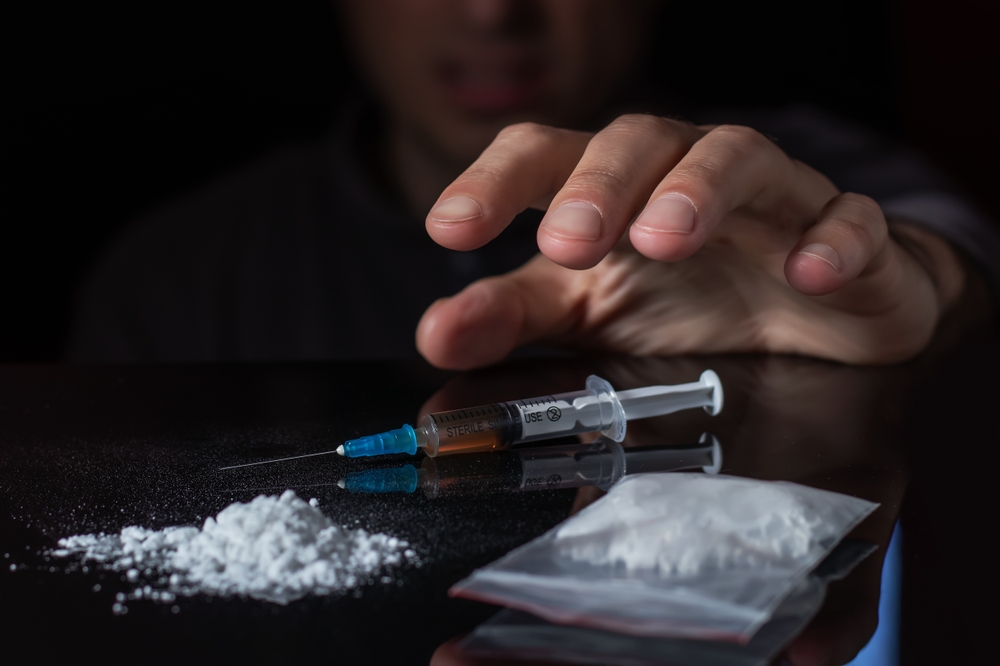
What Is the Christian Response to Addiction?
November 6, 2023
The Effects of Fentanyl Mixed With Xylazine
December 8, 2023
What Is the Christian Response to Addiction?
November 6, 2023
The Effects of Fentanyl Mixed With Xylazine
December 8, 2023
The Dangers of Fentanyl and Meth
The concurrent misuse of fentanyl and meth (methamphetamine) has emerged as a pressing public health crisis, necessitating a comprehensive examination of their associated dangers. Drug overdose deaths rose from 2019 to 2021, with more than 106,000 drug overdose deaths reported in 2021. Deaths involving synthetic opioids like fentanyl continued to rise, with 70,601 overdose deaths reported in 2021. Those involving stimulants, including cocaine or psychostimulants with abuse potential like methamphetamine, also continued to increase, with 32,537 overdose deaths in 2021.1 These potent substances, each notorious in their own right, when used together or separately, can have catastrophic consequences on individuals and society at large. The drug experts at our Christian drug rehab delve into the profound risks posed by fentanyl and methamphetamine, shedding light on their chemical properties, the dangerous effects when combined, and the alarming trends in their usage.
What Are Meth and Fentanyl?
Methamphetamine - also referred to as meth or crystal meth - and fentanyl are both potent drugs with a high potential for abuse and addiction. While both belong to different drug classes – amphetamines and opioids, respectively – they're both highly dangerous and often used together to experience intense euphoria or a "high." Following is a concise overview of both substances.
Methamphetamine
Methamphetamine, commonly known as "meth," is a powerful central nervous system (CNS) stimulant. It belongs to a class of drugs called amphetamines and is known for its stimulant and euphoric effects. Methamphetamine can be found in various forms, including a white, odorless powder, crystalline substance (commonly known as "crystal meth"), or in pill form.
It is often illegally produced and used recreationally. Methamphetamine stimulates the release of dopamine in the brain, leading to increased alertness, energy, and a sense of well-being. However, long-term use can have a severe impact on health, including addiction, cardiovascular problems, dental issues, and cognitive impairments.
Fentanyl
Fentanyl is a synthetic opioid analgesic, significantly more potent than natural opioids like morphine and heroin. It is primarily used for managing severe pain, such as that experienced by cancer patients. Fentanyl works by binding to opioid receptors in the brain and spinal cord, reducing pain perception.
It comes in various forms, including patches, lozenges, and injectable solutions. However, fentanyl has become a major concern in the context of illicit drug use, as it is often illicitly manufactured and sold on the black market.
Illicit fentanyl is frequently mixed with other drugs or sold as counterfeit prescription medications. Although it has a medical purpose as a pain killer, fentanyl’s potency poses a high risk of overdose and death if not used under the supervision of a healthcare professional.
Can Meth Be Laced With Fentanyl?
Yes, methamphetamine can be laced with fentanyl. This illicit practice is a significant concern in the context of substance abuse and the illicit drug trade. Drug dealers create fentanyl-laced meth for various reasons, but the most common is to intensify the effects of methamphetamine or to create a more addictive product.
However, this combination poses an exceptionally high risk to individuals, as fentanyl is associated with a substantially increased risk of overdose due to its potency. Therefore, individuals using meth or any illicit substances should be aware of the possibility of fentanyl contamination.
Side Effects of Meth Laced With Fentanyl
Combining fentanyl with methamphetamine can result in an array of dangerous side effects, underscoring the immense risks. Potential side effects of fentanyl mixed with meth include:
- Respiratory depression: A Fentanyl-meth interaction can lead to severe respiratory depression, which is when breathing slows to a dangerous level, leading to oxygen deprivation and, in severe cases, respiratory failure and death.
- Increased heart rate and blood pressure: Methamphetamine is a stimulant that raises heart rate and blood pressure. When combined with fentanyl, which can have the opposite effect, it can lead to cardiovascular strain, increasing the risk of heart attacks or other cardiac issues.
- Confusion and cognitive impairment: Using fentanyl and meth can also result in extreme confusion, cognitive impairment, and disorientation, as the different effects of these drugs affect brain function.
- Risk of overdose: The unpredictability of drug combinations can significantly increase the risk of overdose. Fentanyl, being many times more potent than other opioids, can easily lead to overdose when mixed with methamphetamine.
- Psychological distress: Users may experience severe anxiety, paranoia, and hallucinations, as the combination of these drugs can have a profound impact on mental health.
- Gastrointestinal distress: Nausea, vomiting, and abdominal pain are common side effects when fentanyl and meth are ingested. These symptoms can exacerbate dehydration and malnutrition.
- Addiction and withdrawal: Both fentanyl and methamphetamine are highly addictive substances. Using them in combination can intensify the risk of addiction, making it even more challenging to quit, and the withdrawal symptoms can be severe.
- Increased risk of fatal overdose: Fentanyl's potency means that even a small amount can be lethal, and when it is combined with methamphetamine, the risk of a fatal overdose is significantly heightened.
Combining meth and fentanyl is exceptionally hazardous, as the effects of these drugs can counteract each other and result in unpredictable and life-threatening consequences. This highlights the critical importance of avoiding such mixtures and seeking professional help for substance misuse.
Meth and Fentanyl Addiction Treatment
If you or someone you care about is addicted to meth and/or fentanyl, the path to recovery and healing begins with taking the first step. At Faith in Recovery, we are dedicated to providing compassionate, evidence-based addiction treatment that addresses the unique challenges posed by these substances.
Our comprehensive faith-based recovery programs, guided by a compassionate and experienced team, are designed to address not only the physical aspects of addiction but also the emotional and spiritual dimensions. We understand the challenges you face, and we are here to provide the support, guidance, and care you need to break free from the grip of addiction.
Call Faith in Recovery today at 888-280-4763 or contact us online to learn more about our methamphetamine addiction treatment and opioid addiction treatment.
Source:
- National Institute on Drug Abuse - Drug Overdose Death Rates

